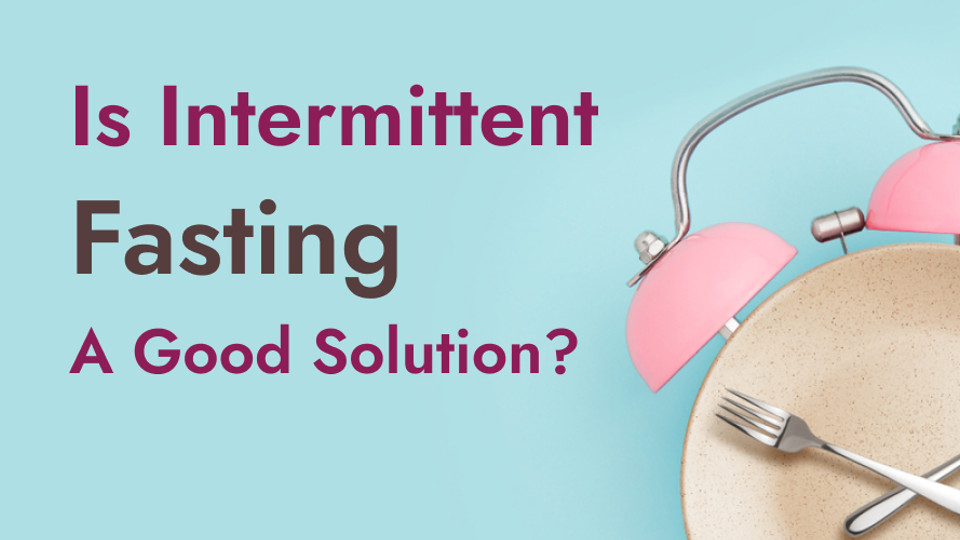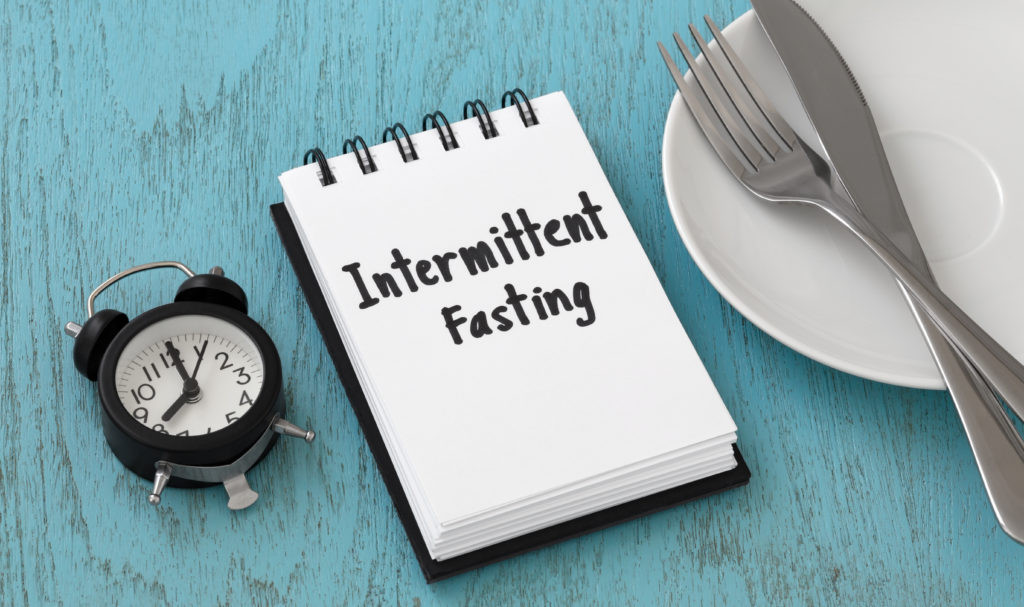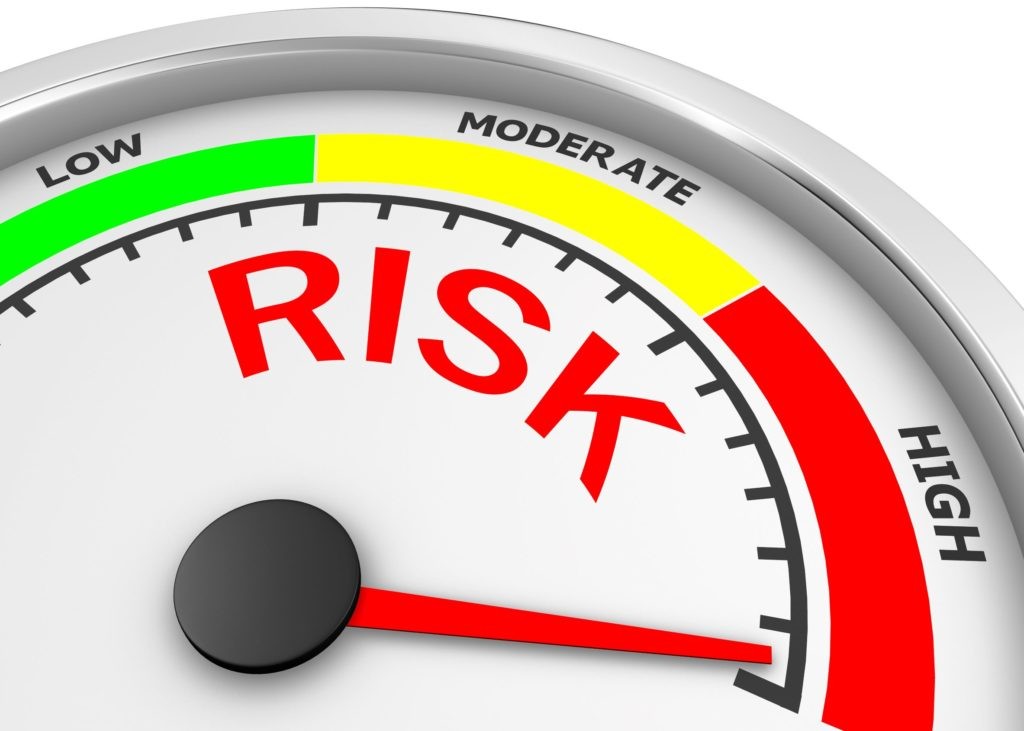
During the pandemic, there’s been reports of higher levels of overeating, binge eating and dieting attempts. In fact, 27% of Australians are undertaking more severe food restriction and 34% are experiencing heightened binge eating episodes since COVID-19 first began. This is unsurprising considering the collective sense of loss of control, stress and anxiety we have experienced worldwide.
What is Intermittent Fasting?
Intermittent fasting has gained traction in the last few years as a solution to weight loss and potentially even assisting with longevity. It focuses on restricting when you eat, rather than what you eat.
There are many different ways to fast but the most popular two versions are alternate day fasting and 5:2 intermittent fasting.
Alternate day fasting includes one day that is completely fasted, with only calorie-free beverages allowed including unsweetened tea, coffee and water. Modified alternate day fasting allows for up to 500 calories on fast days (or the equivalent of 20-25% of your daily energy requirements).
5:2 Intermittent fasting allows you to eat and drink as much as you’d like 5 days of the week but requires you to eat less than 500 calories for 2 days of the week.

What are the risks of Intermittent Fasting?
Despite its popularity, intermittent fasting isn’t risk-free. Recent research highlights a link between intermittent fasting (or delayed eating) and binge eating. Intermittent fasting doesn’t just worsen existing binge eating episodes, it is also linked to an increased risk for onset of recurrent binge eating & bulimia nervosa. [1]
Fasting is also not appropriate for individuals who are pregnant or breastfeeding as it may prevent adequate nutrition and minimize breast milk supply. It is also important to advise your doctor and dietitian if you are intending to fast and are taking insulin or other diabetes medications. Reflux can also be worsened by intermittent fasting.

Bingeing and Intermittent Fasting: What’s The Link?
Did you know you are more likely to binge and overeat when you attempt intermittent fasting?
This is because delayed eating increases the risk of developing episodes of overeating & binge eating.” [2]
Attempting to minimize or control binge eating by Intermittent fasting is not a good idea. Intermittent fasting is eerily similar to a binge and restrict cycle.
Having a strict eating window:
- Requires you to ignore hunger and satiety cues. Ignoring hunger cues throughout the day & waiting until very hungry to eat, can lead to overeating and feeling a loss of control over when eating. Research has shown that having strict rules around food can cause to be less in tune with your hunger and fullness cues which can easily spiral into binge eating as you never feel “satisfied enough”
- Creates a sense of scarcity and urgency around food that must be eating within a certain timeframe
- Can fuel an unhealthy preoccupation with food, where you are constantly waiting for your next meal.
- Can create an all or nothing mindset which can feel guilt, shame and secretive eating.
- Can increase your desire and craving for food. Restricting food also heightens the reinforcing value of food, making you more willing to put in the extra effort to gain access to food.

What do you need to know about binge eating?
- Binge eating does not mean you are weak, lack willpower or are a failure. One of the main parts of binge eating episodes is the loss of control as individuals struggle to stop eating, even when they are painfully full.
- You are not alone. It is estimated that 1 million Aussies live with an eating disorder. Even more engage in disordered eating (which include binge eating, restrictive dieting, laxative use, or vomiting)
- Binge eating doesn’t just happen in young women. Women and men are equally likely to develop binge eating disorder.[3]
- You can get better. It is expected that around half of individuals who receive psychotherapy for binge eating will fully recover. Reach out to your GP, dietitian, or psychologist for support. You can also access the Butterfly’s National Helpline on 1800 33 4673 for a referral or some resources.
How do you manage and prevent binge eating during stressful times?
Higher levels of stress has consistently been link to more episodes of over-eating. Unsurprisingly, we are all more anxious and stress during this year. This can lead us to reach for high sugar, fatty foods to cope with our emotions. Some ways to help combat this include:
- Have a regular eating pattern. Regular mealtimes are more effective at developing healthy eating habits and avoiding binge-eating than intermittent fasting. [2]
- Lean on your loved ones (even if it’s virtually). Having support from your close networks helps buffer against stress and protect your mental health.
- Schedule in joy frequently. Whether that be a long walk, your favorite movie or a park workout, planning ahead for positive experiences can help add in some relaxation and happiness.
- Try to avoid distracted eating and step away from screens to enjoy your food at mealtimes.




